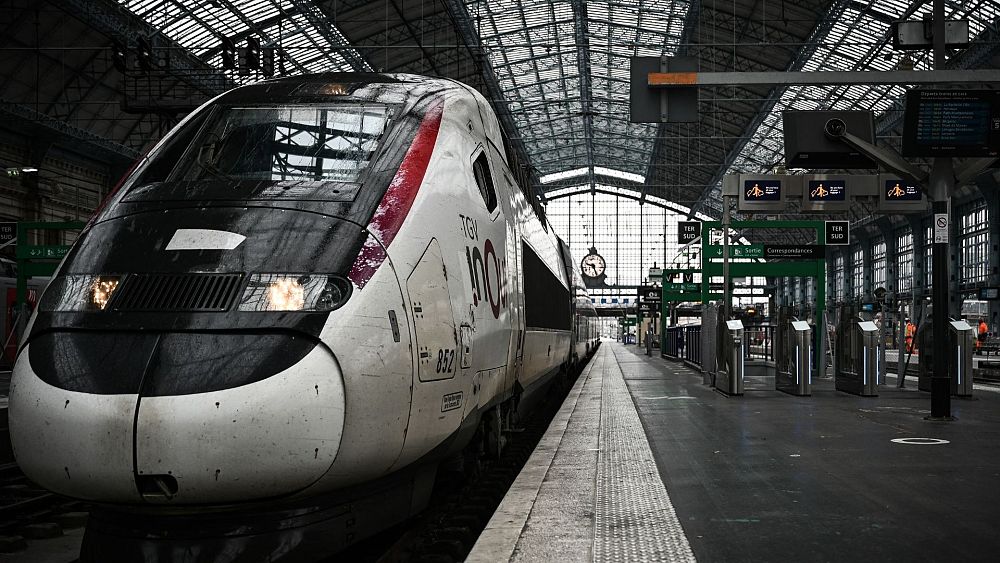“When I joined the industry 15 years back, it was quite unsexy to work in the mobility industry for a rail player,” says Björn Bender, CEO and president of Rail Europe.
Now, that’s all changed, he told the audience of ETC’s Destination Europe Summit on Tuesday (27 June).
Rail has become the poster child of sustainability in Europe. Cross-border routes are receiving support from the European Commission to make them faster, cheaper and more extensive.
Trains are also soaring in popularity with European travellers.
“We had 12 per cent more [train] travellers in Europe in 2022 compared to 2019, so already above pre-COVID [levels],” says Björn.
EU plans to liberalise rail in Europe - by obligating countries to open up their rail markets to foreign competitors - are starting to bear fruit. Fresh routes are opening up and new private players are joining the game. But cross-border challenges still remain.
“Train travel is still quite complex - specifically for international travellers and if you are travelling cross-border,” Björn tells Euronews Travel.
This is partly, he says, because national carriers tend to focus on national business.
As visitors rush to find a greener way to travel, it “is a challenge because we expect very fast solutions from the rail industry.”
The European Union and the Green Deal - which aims to make the EU climate neutral - could help facilitate this by enabling countries and industries to work together on common goals.
“We have maybe a once-in-a-lifetime chance to really change [things], for mobility, for rail, and for travel and tourism in total,” says Björn.
How is Rail Europe hoping to simplify train travel?
Rail Europe wants to bridge the gap between different countries’ operators and simplify train travel across the continent.
The major train ticket aggregator’s aim is to allow travellers to compare prices and gain transparency in what is often a disjointed industry.
It brings together more than 100 brands in the European rail industry, partnering with major train operators to sell passes and tickets for regional, high-speed and night trains, as well as offering group travel.
The platform offers everything from Interrail and Eurail passes to - most recently - the Swiss regional Berner Oberland Pass, as well as tickets from operators like France’s SNCF, Germany’s Deutsche Bahn and Italy’s Trenitalia. And it’s constantly expanding.
“With us, it's almost no week without any product launch,” says Björn. Next week, the platform will start selling Interrail’s Greek Islands Pass, which combines train and ferry tickets.
Rail Europe also offers other services that may be useful to passengers travelling through Europe by train. The website includes details on rail routes, fares, schedules and deals, and customer service support is available if things go wrong.
How can rail overtake air travel in Europe?
Björn hopes that by modernising Europe’s train booking systems, Rail Europe can encourage greener travel.
“Booking systems are 10, 15, even 20 years behind the aviation industry,” he says.
“It is very important when it comes to train bookings to have this transparency out of different systems in one interface, and to also have the possibility to go for the cheapest one or the for the fastest one.”
With cross-border journeys handled by multiple operators in different countries, the cheapest tickets are often divided between carriers, Björn explains.
If travellers are buying directly from the carriers, they will need to search each one to find the best deal, whereas Rail Europe compares everything in one place.
What’s the future of train travel in Europe?
As for the future, Björn paints a bright picture for rail travel - and night trains in particular, with private operators such as European Sleeper entering the market.
“I definitely see a huge, huge chance for night trains in Europe, specifically when we are talking about, let's say, [routes] between 800 and up to 1,500 kilometres,” he says.
He ultimately sees these services expanding beyond the leisure sector to fulfil other needs like business travel.
Investment in infrastructure that allows the extension of routes and the expansion of schedules to enable affordable, regular departures would be a “wonderful outlook” for the future, he adds.


